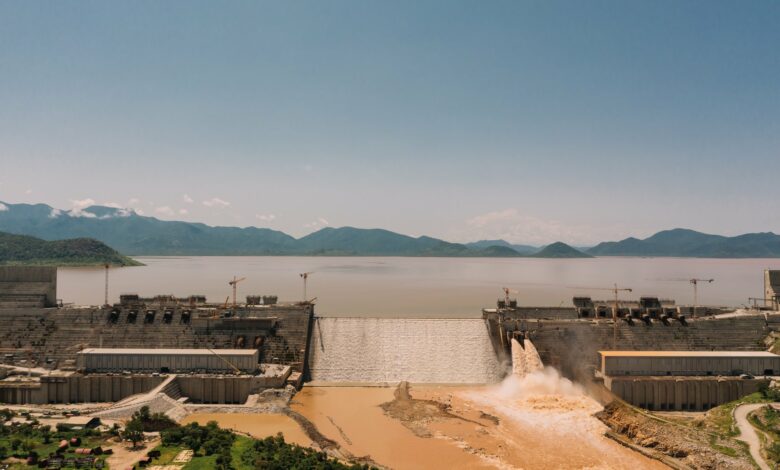
A Professor of Water Resources at Cairo University, Abbas Sharaki, warned that storing 25 billion cubic meters in the fourth filling of the Grand Ethiopian Renaissance Dam (GERD) will mean paralyzing agriculture in one million acres in Egypt, impacting the lives of many people there.
The GERD affected the expansion of cultivation in Egypt and especially harmed rice cultivation, Sharaki said, pointing out that one million acres of rice brings a revenue estimated at about six billion dollars.
Sharaki commented on the Ethiopian Prime Minister Abiy Ahmed’s announcement of the imminent launch of the fourth filling of the GERD.
“Egypt will not stand idly by until harm reaches its citizens,” Sharaki said, in a telephone interview with the “Yahdoth Fi Masr” program, on MBC Masr.
“Had it not been for the presence of the High Dam in Egypt, the storage of 25 billion cubic meters in the Renaissance Dam would not have occurred,” he added.
The High Dam is the main reason for Egypt’s restraint and patience that has exceeded 12 years, he explained, as well as the commitment of the political leadership and its appeal at home and abroad to reach a legal agreement.
According to Sharaki, the last period of drought was in the years 1981 to 1987, followed by a strong flood in 1988, which almost caused a disaster in Egypt.
The presence of the High Dam will protect Egypt from the dangers caused by the GERD in the coming 12 years.
Sharaki said that Ethiopia has not exchanged any information with Egypt about the fourth filling of the Grand Ethiopian Renaissance Dam.
He added that the fourth storage is expected to range from 20 to 25 billion cubic meters of water, which is a very huge amount.
Sharaki stressed that the Ethiopian Prime Minister’s statement about the GERD not harming Egypt is a “lie”, adding: “How is the storage of 17 billion cubic meters in Ethiopia in the past three years not harmful to Egypt?”
Stagnant talks
The Ethiopian government announced on August 11, 2022, that it has completed the third GERD filling unilaterally.
It announced the operation of the second turbine in GERD to generate electric power, which comes in light of the tension between Addis Ababa and Egypt, Sudan due to what the two countries consider a negative impact of the dam on their water shares of the Nile River.
Egypt and Sudan say they want a legally binding agreement on operating the dam, while Ethiopia says any pact should be advisory.
Both countries consider the dam a threat to their vital water supplies, while Ethiopia considers it essential for development and doubling its electricity production.
The downstream nations fear possible blows to water facilities, agricultural land, and overall availability of Nile water.
Negotiations over the dam between Egypt, Ethiopia, and Sudan have stalled for years, with the three parties ultimately failing to reach any agreements.
The disputed dam is the largest hydroelectric project in Africa, with a cost of more than four billion dollars.




